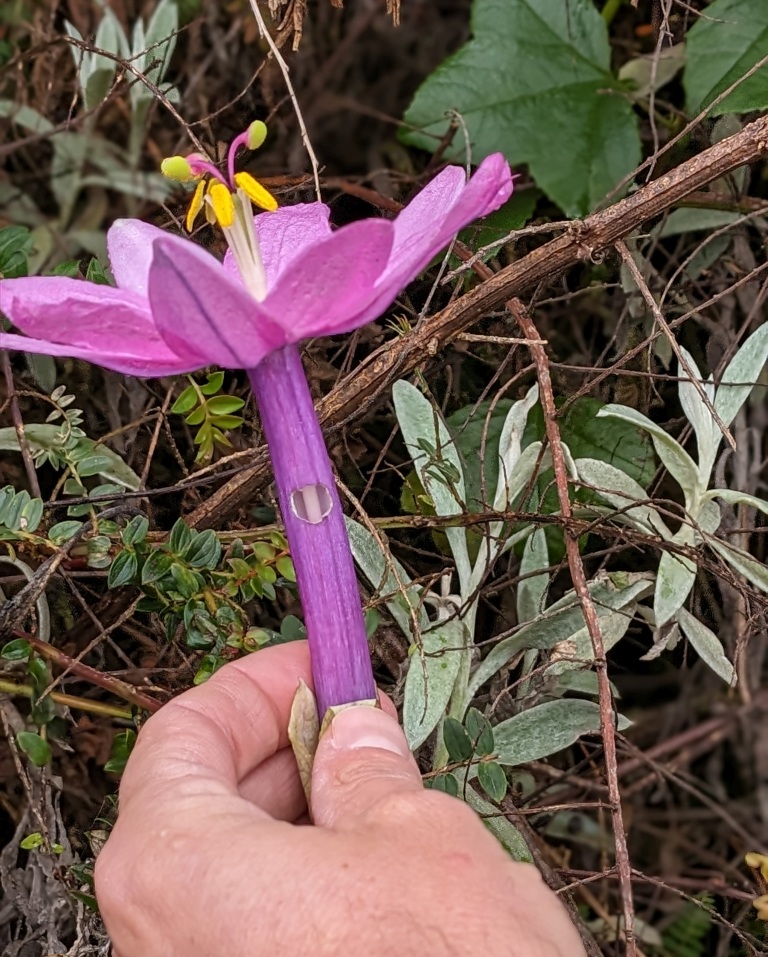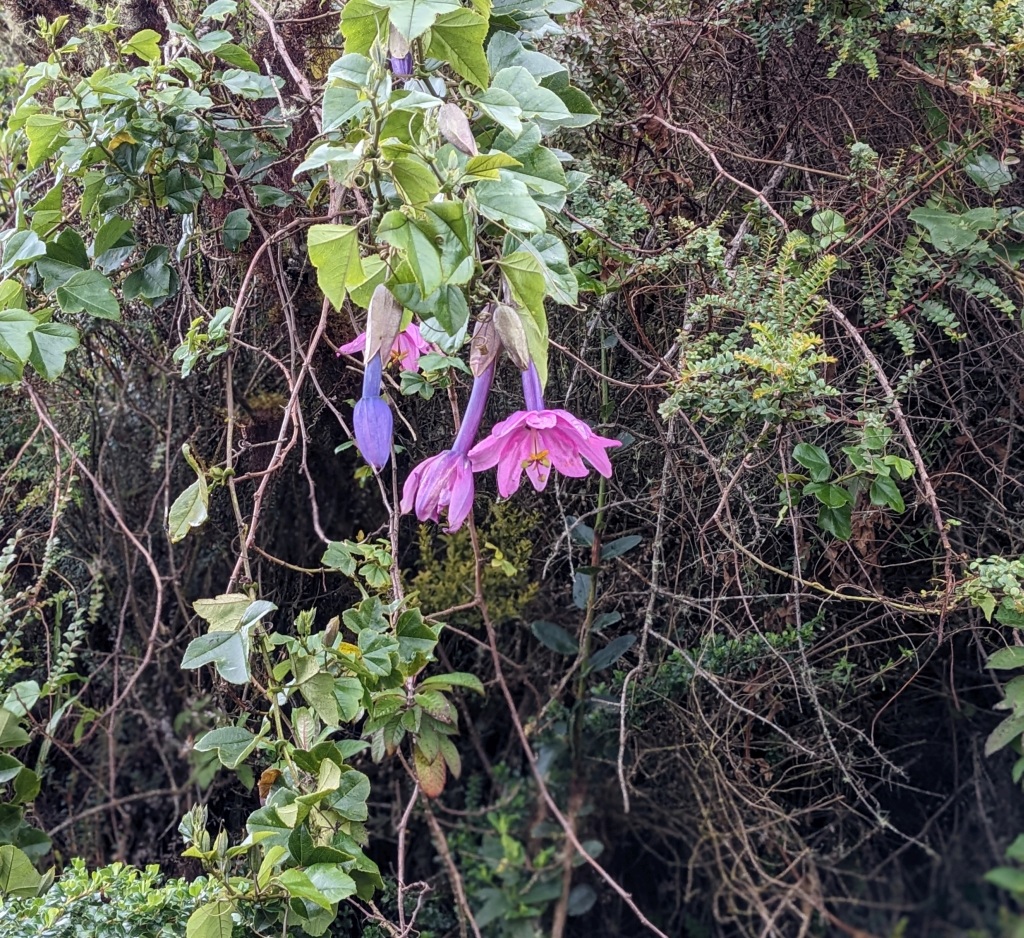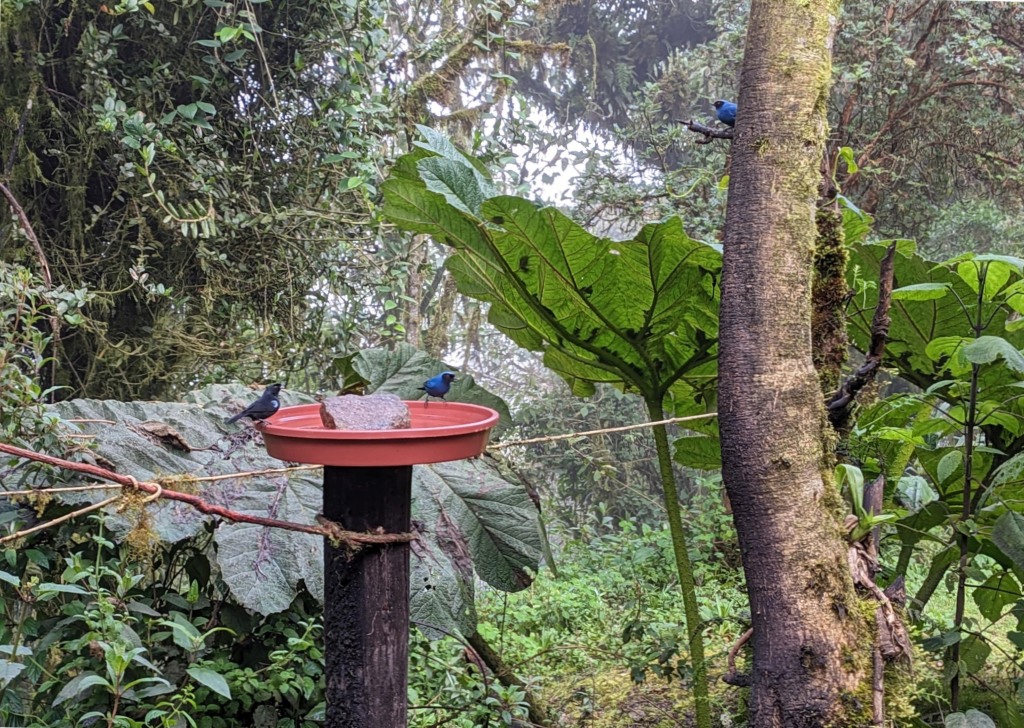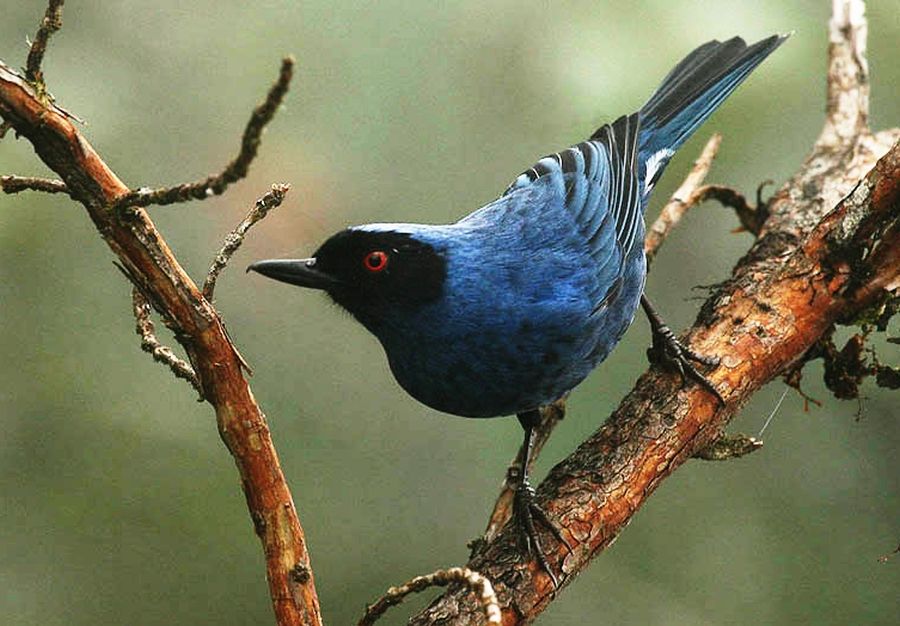
11 February 2023
On our first day in Ecuador, 30 Jan 2023, we traveled to Yanacocha Biological Reserve 11,500 feet up on the Pichincha Volcano. We were wowed by the huge passionflowers (Passiflora sp.) dangling from vines along the trail but on close examination found a hole in this flower tube. It was made by a bird.


These passionflowers evolved long tubes in an arms race against hummingbirds who developed ever-longer beaks to reach the nectar. However members of the Tanager family eat nectar, too, even though that have short beaks and cannot hover at the flower opening. Flowerpiercers (Diglossa sp.) land on the flower and bypass the flower’s defenses by poking a hole in the tube.

Masked flowerpiercers (Diglossa cyanea) and glossy flowerpiercers (Diglossa lafresnayii) were abundant at Yanacocha. We could hear them chattering in the forest …
… and see them at the nectar dishes. (The glossy flowerpiercer is black with a white shoulder at left below.)

Flowerpiercers are specially equipped for piercing flowers with a hook at the tip of their beaks. This photo from Wikimedia Commons shows the hooked tip.

In Pennsylvania it’s the hummingbirds that eat nectar and insects that make holes in flowers. It’s amazing to think there is so much nectar in Ecuador that birds bother to pierce the flowers.
(photos by Kate St. John, Mary Eyman and Wikimedia Commons)
References: